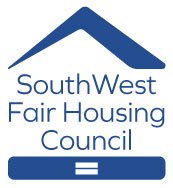A Landmark Ruling: Bridging Fair Housing and COVID-19 Protocols
We continually monitor and evaluate fair housing cases across the nation, drawing lessons and insights that could be instrumental for the citizens of Arizona. One recent case that stands out involves the intersection of COVID-19 protocols and the Fair Housing Act, shedding light on the importance of reasonable accommodations, especially during unprecedented times.
Case Overview
On April 11, 2023, a consent order was issued in the case of United States v. Albright Care Services et al. (M.D. Pa.), uncovering a scenario where pandemic precautions potentially infringed on fair housing rights. The case arose from a complaint filed on April 6, 2023, alleging that a Continuing Care Retirement Community (CCRC) in Lewisburg, Pennsylvania, denied a reasonable accommodation request for the son of a resident with disabilities to live with her as an aide. This accommodation became crucial as the community had restricted external visitors due to COVID-19 concerns.
Defendants and Allegations
The allegation spotlighted how the CCRC and Asbury Communities, Inc. possibly neglected the Fair Housing Act's mandates by not providing the necessary accommodations, which are quintessential in safeguarding the rights of individuals with disabilities, particularly during the pandemic. This case was escalated to the Division after the U.S. Department of Housing and Urban Development (HUD) received a complaint, carried out an investigation, and issued a discrimination charge.
Resolution and Impact
The consent order pronounced a significant resolution, mandating the defendants to compensate the HUD complainants with $215,000 in damages. Moreover, it necessitated the adoption of reasonable accommodation policies across their CCRCs in Pennsylvania, Maryland, and Tennessee, marking a proactive step towards avoiding such discrepancies in the future.
Reflection for Arizona
While this case unfolded in Pennsylvania, it holds substantial relevance for our community here in Arizona. It underscores the essence of reasonable accommodations in promoting fair housing, reminding establishments to align their COVID-19 protocols with the Fair Housing Act's provisions. This case serves as a crucial reminder of the delicate balance between public health concerns and the unwavering necessity for fair housing rights, providing a learning curve for all involved in housing and care sectors within our state. At SWFHC, we remain committed to promoting fair housing practices, and part of our mission involves learning from and sharing insights on cases like these. We encourage you to stay informed and engaged.

